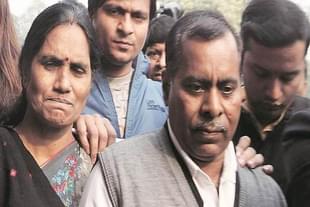Politics
Nirbhaya Death Verdict: No Case For Clemency For Four Convicts, Juvenile Walked Free in 2015
R Jagannathan
May 05, 2017, 04:43 PM | Updated 04:39 PM IST
Save & read from anywhere!
Bookmark stories for easy access on any device or the Swarajya app.


With the Supreme Court confirming the death sentences on the four convicted rapists of ‘Nirbhaya’, a.k.a. Jyoti Singh, the physiotherapist who was gangraped on a bus on the night of 16 December 2012, the stage is set for one of the biggest multiple-hangings in Indian judicial history.
However, it could still be months, if not a year or two, for the whole appeals process to end, including the hearing of a possible public interest litigation filed by death-penalty opponents, to be followed by the final mercy petition to the President – which will hopefully be dismissed.
This crime deserves no mercy. For Jyoti Singh, along with her friend, had boarded a bus on that fateful night after being lured in by a juvenile who has since been released and spirited away anonymously as per the law. If he had done what he had done on 16 December 2012 today, he too could have faced the noose or life imprisonment for his horrific act of enabling rape and murder.
This is what happened on that night. Singh and her male friend were returning home after watching a movie; an off-duty bus with the six accused – Ram Singh, Akshay Kumar, Vinay Sharma, Pawan Gupta, Mukesh and the juvenile – stopped the bus at Munirka to pick them up, promising to drop them near their home in Dwarka. The two got in convinced that the bus had other passengers, when they were really the other accused posing as passengers. Once they had boarded, they were brutally beaten up and the woman gang-raped and mauled; after that they were thrown out naked on the street. The woman died two weeks later in a Singapore hospital, while her friend survived and proved to be a key witness in the case. The bus driver, Ram Singh, allegedly committed suicide in jail, while the juvenile spent three years in a reform home and was quietly released in December 2015.
Several observations are worth making in this case. These could be relevant in other cases.
One, even with the topmost priority given to the trial of this heinous rape-cum-murder case, it has already taken the system four-and-a-half years to get to the stage of a Supreme Court verdict. And we may still have some time to go before the hanging. Justice may be done, but it is being delayed too long. Clearly, this area of speeding up justice delivery should be priority No 1.
Two, the juvenile who was released after three years of remand in a juvenile home, may yet be a threat to society, for his whereabouts are not known. One hopes that the police and some NGOs know about the progress he is making to turn human after participating in the worst of crimes. Rumours that he may have been radicalised while spending time in the reform home were not confirmed.
Three, with both of Nirbhaya’s parents clear that the accused must die, the scope for clemency is very low, not least due to public sentiment. While the high-profile nature of this case may ensure that the parents’ wishes are respected during the rest of the judicial process, the principle – that the relatives of the victims must have a voice in clemency proceedings – needs to be adopted as the norm. The people who want the death penalty abolished, or states which want to make political points by releasing murderers and assassins (as in the case of Rajiv Gandhi’s killers or Beant Singh’s assassin), should have less of a role to play in clemency proceedings. They have no stake in it.
Four, the “suicide” of one of the accused should alert us to the reality that people accused of major crimes are high-risk prisoners. One wonders why no care was taken to ensure that Ram Singh did not have any chance to take his life, if that was the case here. How can jails allow undertrials to take their own lives, when there is always the possibility that they could be exonerated by the courts? In this case, no one may shed tears for Ram Singh, but what if he had been innocent?
The two travesties in the Jyoti Singh case are that only four of the six accused are finally ready to face the noose, and even that will come after a very huge time gap.
Jagannathan is former Editorial Director, Swarajya. He tweets at @TheJaggi.





